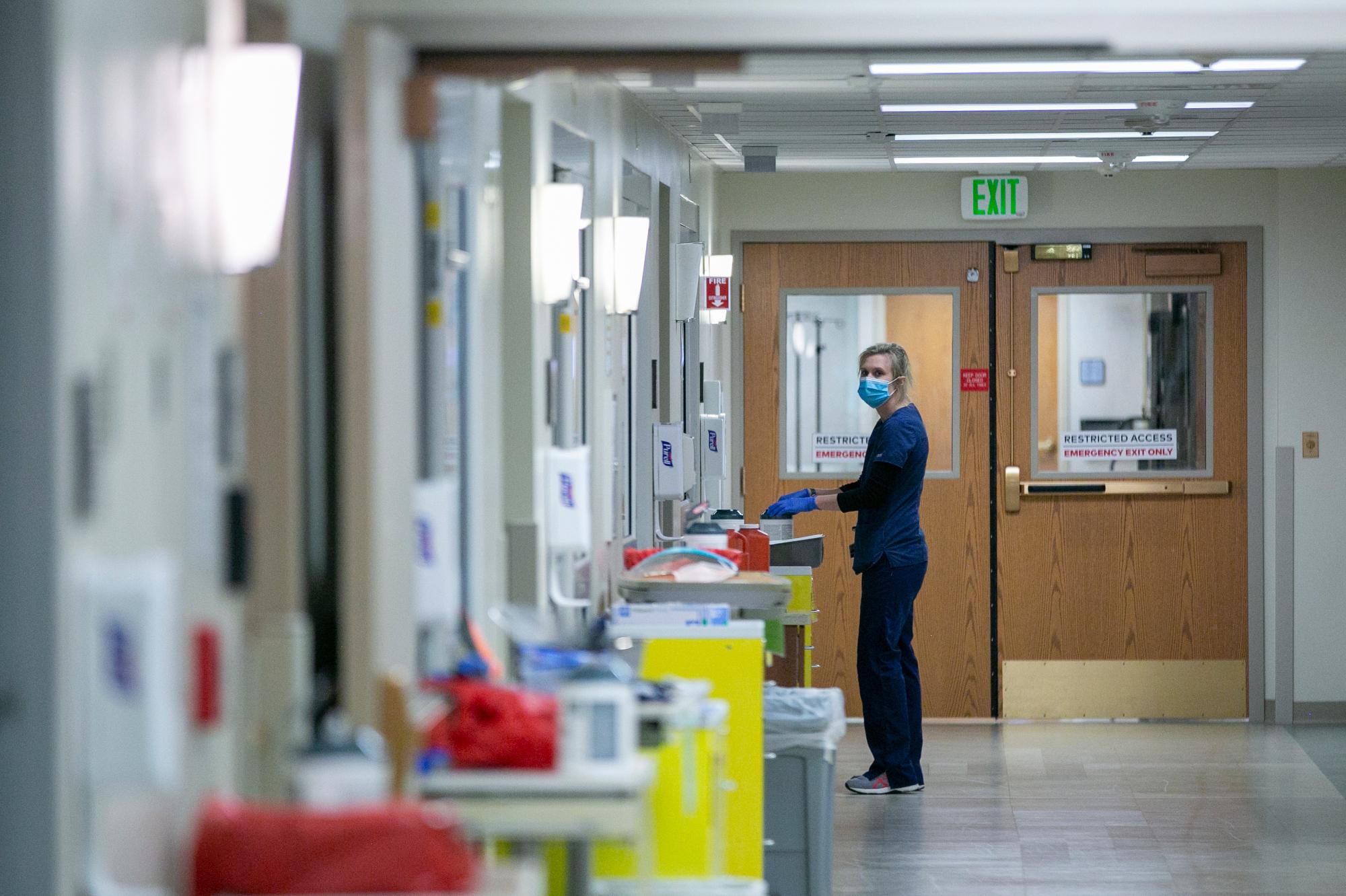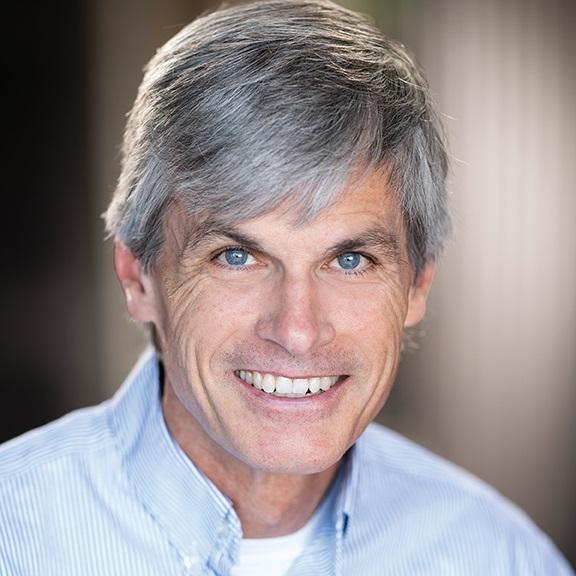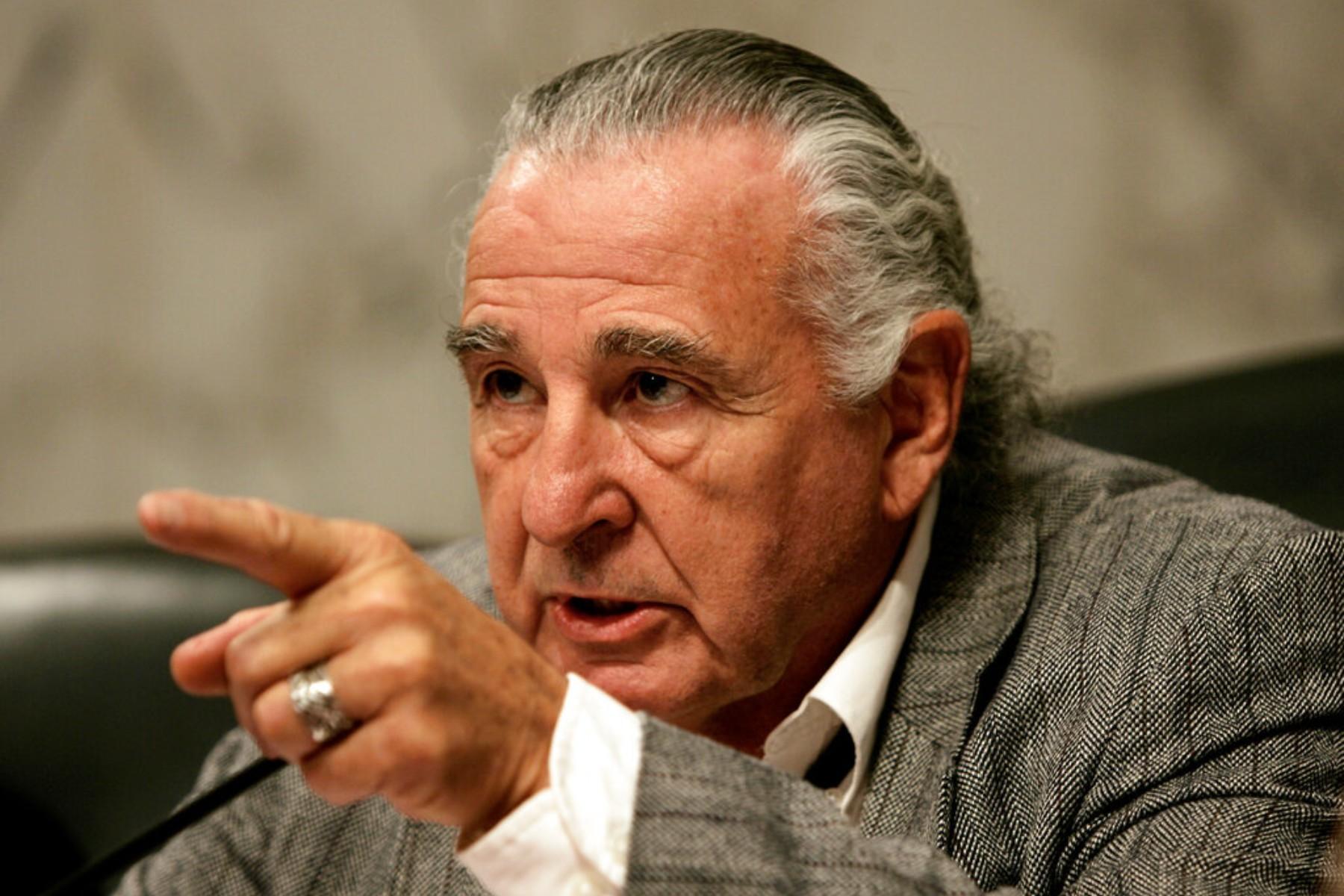
Colorado has among the highest COVID-19 transmission rates in the nation, with hospitalizations reaching levels not seen in 11 months.
“Where we are at now is simply not sustainable,” said Gov. Jared Polis at a Friday press conference, lamenting that more Coloradans aren’t vaccinated. “If you’re not vaccinated, you’re going to get COVID.”
Still, Polis said a mask mandate is not likely, citing other states, like New Mexico, that have mask orders yet continue to suffer high transmission rates.
Nor did he signal that the state would mandate proof of vaccine or negative COVID-19 tests for things like indoor dining.
A turn to monoclonal antibody treatment to reduce hospitalization.
Instead, Polis highlighted an effective treatment that can reduce hospitalizations, regardless of vaccination status: monoclonal antibody drugs.
The drugs, Polis said, have a 70 percent chance of keeping high-risk COVID-positive patients out of the hospital, and could bend the curve on ICU capacity in the coming weeks.
“We could reduce Colorado's current risk of exceeding hospital capacity by nearly 30 percent,” State Epidemiologist Dr. Rachel Herlihy said. “And we could prevent 2,600 hospitalizations and 210 deaths between now and the end of February.”
Some of the treatments have been on the market for a year. But, “many Coloradans don’t even know these treatments are available,” Polis said.
The state, he said, is working to expand monoclonal antibody treatment by reducing barriers, including eliminating the need for a doctor’s referral and adding five new monoclonal treatment “buses” by mid-December.
COVID-19 cases in the state have risen 30 percent in the last 14 days, and Colorado is now second in the U.S. in the number of COVID cases per 100,000 residents reported over the last seven days, according to data from The New York Times.
But doctors are reporting difficulty in getting patients monoclonal treatment in Colorado.
The treatment must be given within 10 days of symptoms, but the earlier the better with these antibody drugs. It currently must be approved by a doctor, and only high-risk populations are eligible. A physician fills out a form on the CDPHE website, verifies that the patient has a positive test, then chooses a location.
Often, however, doctors are finding those locations can’t schedule patients. They don’t have the drug, or there’s no availability within the treatment window.
“And then that's when the fun starts,” said Dr. Mary Catherine Husney, a private practice doctor in the Denver suburb of Glendale. “I need to start calling all the different locations, trying to find a location that actually has availability within the next few days, which is usually how long I have before the window is going to expire for the patient.”
She spent two hours, mostly on hold, scheduling a monoclonal antibody treatment for a patient recently. She had to then get the order forwarded from the old location to the new location.
“Kudos to her for being so diligent and staying on the phone,” said Dr. John Douglas, the executive director of Tri-County Health Department. “I hadn't heard from a doc directly that working through the CDPHE website ended up resulting in that sort of calling and calling and calling and calling, although I'm not surprised at all.”
The same thing happened with vaccines, he said, but in this case, the health care provider has to make the calls, not the patient. Polis said in the coming days the state would implement a standing order so patients could seek the treatment without a referral.
“It's not a trivial undertaking,” Douglas said. “And as we do a better job of alerting people to the value and the benefit of this, my fear is that while the state is working really hard to try to scale up providers who can offer it, it may actually make that problem the doc experienced even more challenging.”
Douglas said the state was working on creating central locations where people could get treatment.
Dr. Husney welcomed the idea.
“If the convention center could be set up again and people could just go and do their infusions there, that would keep everybody out of the emergency rooms and hospitals,” Dr. Husney said.
A spokesman for Polis, Press Secretary Conor Cahill, said in an emailed statement that part of the problem was in the transition of oversight of the monoclonal program from the federal government to the state, "and the state is in the process of working to remove barriers to treatment and streamline access."
- Nov. 10: Colorado could exceed hospital capacity in December as Polis pushes boosters, but no mask mandate in sight
- Nov. 8: With Colorado hospitals full and short-staffed, some health care providers may need to work in roles they aren’t certified for
- Nov. 3: With Colorado hospitals overwhelmed, patients can now be transferred anywhere in the state
- Nov. 1: New Colorado health order allows hospitals to refuse patients as COVID cases and hospitalizations rise
- Oct. 25: Colorado COVID-19 hospitalizations keep rising, with unvaccinated patients filling ICUs and acute care wards
- Oct. 22: ‘No place for the patient to go ’ — As a new COVID wave hits, hospitals struggle to find open beds
- Oct. 12: Hospitalizations and deaths climb as Colorado’s fifth COVID wave keeps rising









